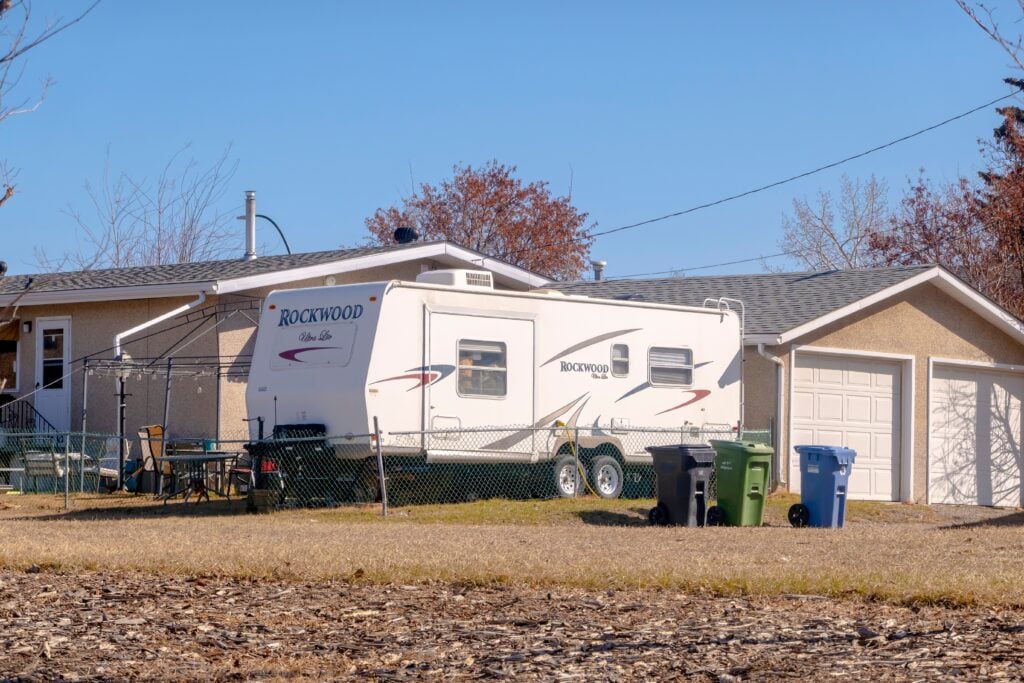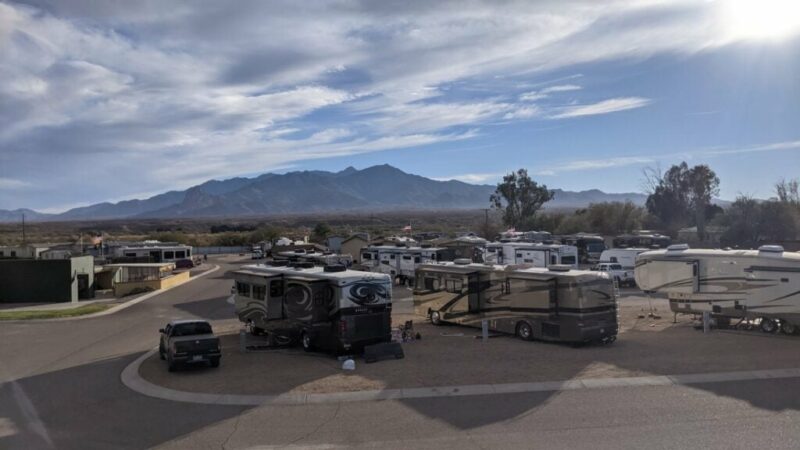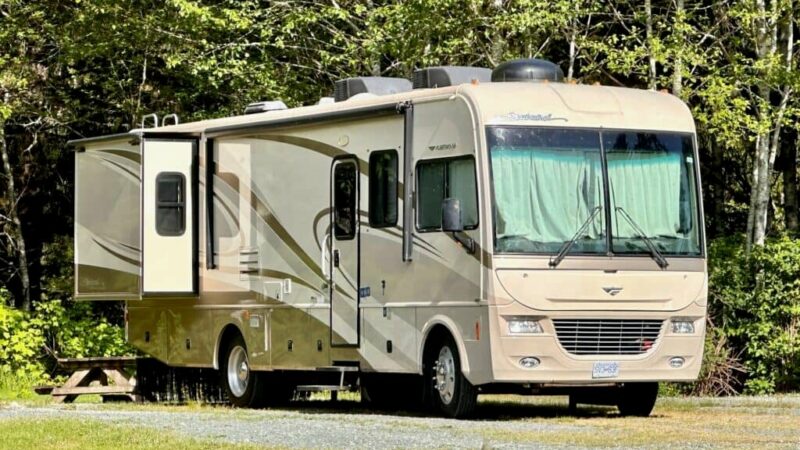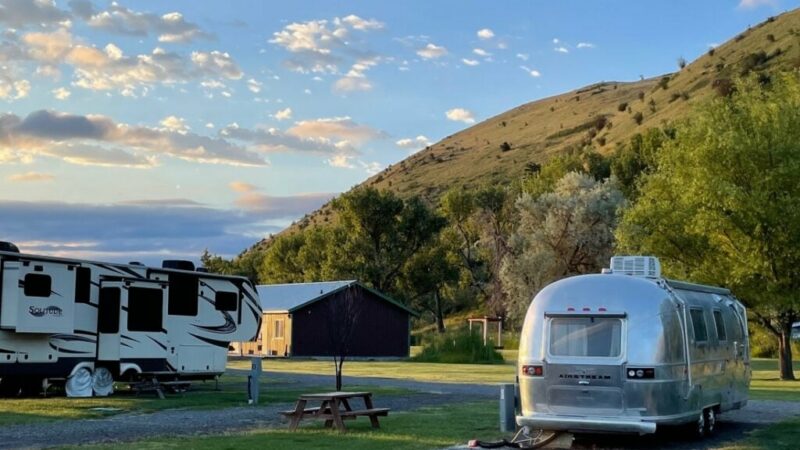Can Your RV Be Repossessed? What Every RV Owner Should Know

Don’t Let Your RV Become Repossessed: What You Should Know
Everybody loves RVs, but most people need a loan in order to buy them. If you run into financial trouble, you might find yourself falling behind on your monthly payments. In this case, you may start to worry about your financial situation and whether or not your RV will be repossessed.
In most cases, your loan provider or RV dealership can repossess your vehicle if you cannot pay for it. The process and timeline may vary, and you’ll have other options to explore before the clock runs out. But as long as you still owe money on an RV loan, it can be reclaimed.
RV repossession is an unpleasant situation, and most people try to avoid it at all costs. Fortunately, there are things you can do to minimize your financial risk or at least soften the blow if you need to surrender your vehicle. Sometimes repossession is inevitable, but you can take a few preventative measures to protect yourself. Read on to learn more about repossession, some state-specific laws, and what you can do to protect your investment.
Why would an RV be repossessed?
Repossession is a scary word, and most of us associate it with financial ruin. If your home, vehicle, or RV is repossessed, you can no longer use it for your daily needs. However, this is part of the agreement whenever you apply for a loan.
The loan provider recognizes that you don’t have sufficient funds to buy an RV outright, so they agree to “purchase” the vehicle for you and allow you to pay them back through a series of small installments. In this case, the RV itself is the collateral on the deal.
The threat of repossession usually encourages people to maintain regular payments. But sometimes, financial troubles can sneak up on you. If you lose your job or have to pay for new expenses out of pocket, you might not be able to keep up with the loan demands.
If you cannot afford your monthly payments, the loan provider may choose to take the vehicle into their own hands so they can repurpose it. At this point, they often resell RVs for a discounted price so they can quickly make money off of the deal.
As a side note, if you’re interested in finding cheap RVs, you can usually find a collection of repossessed campers and motorhomes in your area. Credit unions and other loan providers are eager to move this merchandise, so you can get a great deal on a secondhand model! They might need a bit of work, but the price is hard to beat.
In general, repossession is a bad deal for both the loan provider and the buyer. Most people only pursue this option if there’s no other choice. But if the buyer cannot pay for the RV, the transaction will never finalize. Repossession isn’t preferable for anyone, but it’s always a possibility.
Repossession laws by state
Although the principles of repossession are fairly standard, different states have their own laws about how it can be done. In general, the rule is that the loan provider (aka titleholder) can repossess or disable your vehicle within 10 days of the first missed payment. Sometimes they can even act immediately after a payment is missed.
Although the laws allow them to act quickly, there’s usually a grace period where titleholders allow you to plead your case or pay whatever you owe.
Repossession can be a messy process, and the titleholders have a lot of power in this situation. If you cannot or will not surrender your vehicle, they often have the power to disable it. When you can no longer move the vehicle, you lose a lot of autonomy and bargaining power. Sometimes they can even come onto your property to remove or disable your RV.
Again, the laws and regulations change from one state to another. Check out this full list of state repossession laws so you know what to expect. If you think your vehicle may be repossessed, it’s important to know what’s coming.
How to avoid repossession
Although repossession is damaging to the owner, it’s also not ideal for the titleholder. Repossession is often a last resort because it represents a failed transaction. The buyer loses their vehicle, and the loan provider has to find a way to recoup the costs. Reputations and credit scores may be damaged on both ends as well.
Because of these drawbacks, most people try to avoid repossession at all costs. Titleholders usually offer some options and wiggle room so you can continue to make payments. Fortunately, there are also some alternative options available to you.
Refinance the loan
For starters, you could try to refinance your loan. When you apply for an RV loan, you might end up choosing one that has high-interest rates or other drawbacks. If your credit score has improved since the initial loan, you might be eligible for refinancing options.
Refinancing helps you rearrange the terms of the agreement so you can continue to use the vehicle and make payments. Various institutions offer refinancing services, but you should stay away from shady or predatory loan providers.
During these loan negotiations, you might be able to secure lower monthly rates or create a different timeline for paying off the loan. You might have to pay more altogether, but it helps if it’s spread out in an affordable way. Discuss the terms of the contract and see where you might be able to make adjustments.
Once again, remember that even titleholders don’t like to repossess vehicles if they don’t have to. If you can find an alternative solution, they’ll usually be willing to help you.
Sell the RV
Another potential solution is to sell the RV. This can get tricky, especially if you still owe a lot of money or don’t have the title in hand. However, if you can sell your RV for more than you currently owe, you can use this money to pay back the titleholder and free yourself from the agreement.
You’ll have to discuss this with the titleholder before moving forward because the vehicle technically belongs to them. But as long as they get their money, they will generally agree to this course of action.
Sometimes, you might even have a bit of money left over from the transaction! You’ll also be able to maintain your credit score, so you might be eligible for other loans in the future. At the end of the day, you’ll still lose the RV, but selling it allows you to maintain a better financial situation.
Surrender voluntarily
In some cases, repossession is unavoidable. A sudden financial tragedy could severely limit your options, leaving you no choice but to default on your loan. This is unfortunate, but it does happen.
If you have determined that you cannot pay for your RV loan anymore, you could make things easy on yourself by surrendering the vehicle voluntarily. This shows that you are willing to make things right and work with the titleholder.
They may go easy on you during the repossession process if you take the initiative. You’ll be able to work out a better arrangement for all parties involved and generate goodwill.
Repossession is never fun, but it’s better if you hold your head high and strive to work through it. You may be able to save face (and money) by going to the titleholder first rather than making them seek you out.
Get tips from other RVers
One of the best parts about RVing is engaging with the community of traveling enthusiasts. iRV2 forums allow folks to chat with other RVers online, and get other perspectives on everything RVing, including products, destinations, RV mods, and more.
Related articles:
- How To Get The Best RV Loan Rates
- What You Should Know About RV Financing Pre-Approval
- Can You Find RV Financing With Bad Credit?
The post Can Your RV Be Repossessed? What Every RV Owner Should Know appeared first on RV LIFE.






